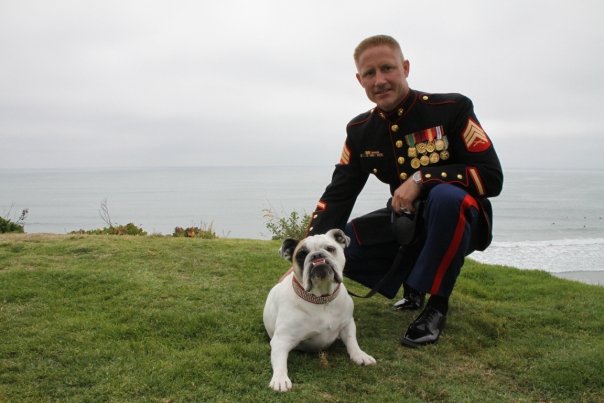
By Vicki Prichard
NKyTribune Contributor
Service was something of a legacy for Robert Sherman, who felt the call of duty when the Twin Towers fell.
“I’m from a big military family. My grandfather served and my dad served, and my two brothers had served,” says Sherman.
“Coming out of high school they tried to get me to go to West Point – I was pretty good football player – but at the that time in my life I just didn’t see myself in that kind of environment. I wanted to go and have a normal college experience, if you will. All the way through my twenties it was something in the back of my mind, but then 9/11 happened.”
When he learned that a young man, an acquaintance, from his Edgewood neighborhood was killed in the attack on the World Trade Center, Sherman was compelled to serve.
“It just kind of struck a chord because we grew up in the same neighborhood and I just felt that it upset me enough that I wanted to do something about it, so I enlisted in the Marine Corps.”
Sherman left for the Middle East in January 2002 and would have three deployments in his first four years. The fourth deployment came when he was transitioning out of the Marine Corps but was called back.
“I was in Iraq three times and Afghanistan once. It was tough, but at the time you don’t realize it,” says Sherman. “I was unattached so it didn’t really bother me. So many guys were coming and going all the time, you didn’t think too much about it. But you felt pretty fortunate that you came back in one piece. You didn’t think you were any different, that you were more special than anybody else because a lot of guys were rotating in and out. You just felt like it was your duty.”
Transitioning back to civilian life wasn’t always smooth, says Sherman, who lives in Taylor Mill and works for Big Chief, Inc. in Cincinnati.
“The first few months back in the states, I thought it was tough,” says Sherman, who had spent years mentally alert for explosives.
“Because of the way the enemy was putting Improvised Explosive Devices (IEDs) behind guardrails, or street signs, or speed limit signs, different things – so you’re passing these things on a daily basis here in the states and you’re thinking, ‘That would be a great spot, or that would be a great spot.’ You’re always thinking about it. It takes a while to disconnect from that. You come home, and you’re thankful, but you do a deployment six or seven months straight and it becomes second nature, and it’s hard to turn off.”
Talking about the time he spent in the war isn’t always easy, but Sherman says that when he does it’s more about the opportunity to talk about those who didn’t come back.
“It’s more about the appreciation for those guys and their families,” says Sherman. “It’s people making a sacrifice to ensure our way of life, and it’s something that veterans and active duty military take very seriously, and sometimes you just wonder if people recognize it because they carry on with their daily lives, business as usual. So sometimes it’s tough. It was hard, but you just kind of deal with it and go on.”

















